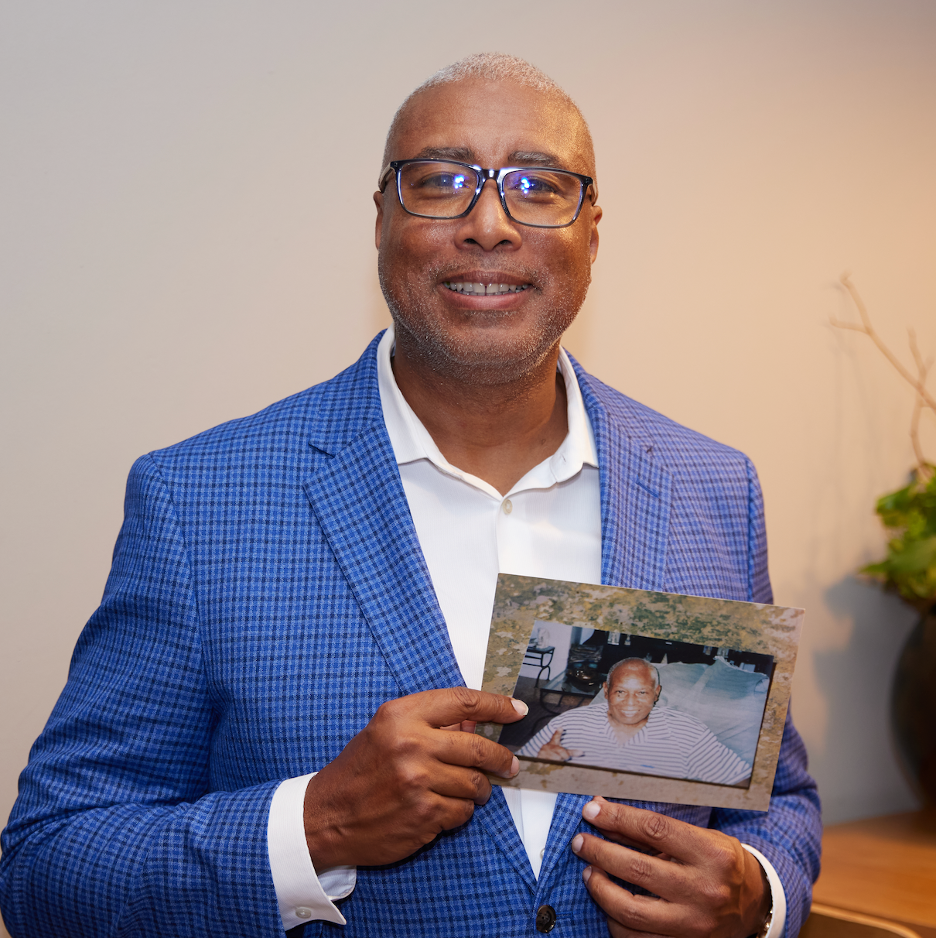Bernie Williams: How Music Can Support Patients with ILD
Baseball legend Bernie Williams opens up about his father’s battle with ILD and his passionate advocacy for raising awareness through the healing power of music.
By
Lana Pine
| Published on August 15, 2024
6 min read
Bernie Williams

In an interview with The Educated Patient, Bernie Williams, Yankees legend and Latin Grammy nominee, delves into his deeply personal journey of witnessing his father’s battle with interstitial lung disease (ILD). He opens up about how his father's diagnosis and passing shaped his life and fueled his passion for raising awareness about the condition that causes irreversible scarring of the lungs, making it difficult to breathe. Through the “Tune In To Lung Health” program, Bernie has become an advocate for education and support, using music and breathing techniques to help patients and families cope with the challenges of this chronic illness.
Can you share a bit about how your father's battle with ILD affected your family and his journey in general?
Bernie Williams: Absolutely, and thank you for giving me the opportunity to share my story. My dad's battle with ILD, specifically idiopathic pulmonary fibrosis, was one of the most impactful events in my life. It started with a subtle, persistent dry cough that gradually worsened, leading to fatigue and severe difficulty breathing. The most frustrating part was the lack of knowledge we had about the condition—both within our family and in the medical community at large. It took about 5 years to get the correct diagnosis, which was incredibly frustrating as we went from place to place seeking answers. This experience has driven me to advocate for awareness and education about ILD, to help others avoid the same confusion and frustration. There is so much we can do to educate ourselves and know that we’re not alone—there’s a support system in place, and it's important to be a part of it.
Can you tell me a bit more about the Tune In To Lung Health program?
BW: Tune In To Lung Health is a program developed in collaboration with Boehringer Ingelheim. It’s designed to help people educate themselves about ILD and the healing power of music in dealing with the associated challenges, including anxiety and depression. The program not only benefits those with the disease but also caregivers, who have the great responsibility of caring for their loved ones. The website features a playlist to help people relax, along with breathing exercises from a renowned vocal coach, Eric Vetro. It also offers valuable information from doctors and patients, making it a comprehensive resource for anyone affected by ILD.
How does this program use music and breathing techniques to support ILD patients and their families?
BW: When you have ILD, breathing becomes a significant challenge, so developing techniques to enhance breathing is crucial. Most people take breathing for granted, but for those with ILD, every breath is so valuable. The program includes vocal and breathing exercises designed to improve lung function, which can significantly enhance the quality of life for patients.
In what ways do you think the arts, particularly music, can play a role in managing chronic illnesses like ILD?
BW: A positive mindset and good disposition are crucial when dealing with chronic illnesses. Music and the arts can play a vital role in this by lifting spirits, easing anxiety, and helping patients and caregivers stay motivated. A song can change your mood and make you more receptive to treatment, which is essential for managing these diseases. Caregivers also need to take care of themselves, and music can be a resource to help them cope.
What are some key messages you conveyed during your recent webinar panel with the Arthritis National Research Foundation?
BW: From my personal experience, I emphasized the importance of education and having access to the right information to develop a plan of action. Understanding what you're dealing with and how to treat it is essential for enhancing the lives of patients and their loved ones. Although I’m not a doctor, I know that having a positive attitude, a strong support system, and the right knowledge are really important components of the process.
How has your experience with your father influenced your passion for advocacy and raising awareness about RA-ILD?
BW: My father's experience taught me to never take a day for granted and to live life to the fullest. He also showed me the importance of not giving up and relying on family and friends for support during tough times. This has fueled my passion for advocacy and raising awareness about RA-ILD.
What advice would you give to individuals who either have ILD or have friends or family members with ILD?
BW: It’s crucial to seek support from family and loved ones and to avoid isolating yourself. Utilize the arts, music, and other resources to maintain a positive attitude while tackling these diseases. Being educated about the condition and knowing what resources are available is equally important. Time is of the essence, so it’s important to get informed as quickly as possible to enhance the quality of life for those affected.
Is there anything else you’d like our audience to know?
BW: My dad was my superhero, the person who influenced me the most. He taught me how to play guitar and inspired my love for sports. A lot of the person that I am today, I attribute to the influence of my dad. I know that many people have loved ones who might show early signs of ILD, and the sooner you consult a doctor or pulmonologist for a diagnosis, the better. The earlier you identify the disease, the more resources you’ll have to improve the quality of life, and that’s the message I want to share.
This transcript was edited for clarity.

